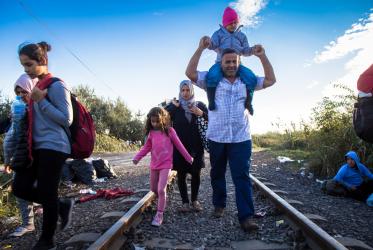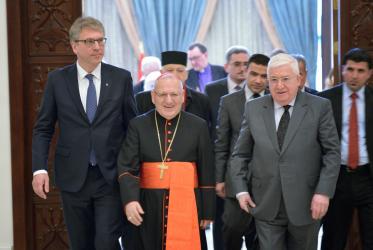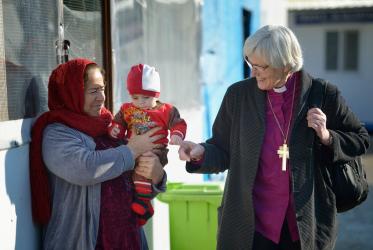Displaying 541 - 560 of 725
01 March 2017
“When everybody is building walls, the church can build bridges”
30 January 2017
“We can’t go back as long as we know we are not secure”
26 January 2017
‘No Christmas bells in Mosul’ for a third year, says Assyrian priest
14 December 2016
Second Bible study on stateless persons available for Advent use
08 December 2016
In Syria and Iraq, minorities must come out of the darkness
28 November 2016
Out of the darkness
28 November 2016
Paralyzed by shock
28 November 2016
Driven out
28 November 2016
WCC strengthens call to end statelessness
08 November 2016
WCC, LWF host recipients of Right Livelihood Award
02 November 2016
Ban nuclear weapons by law next year, says historic UN vote
28 October 2016












